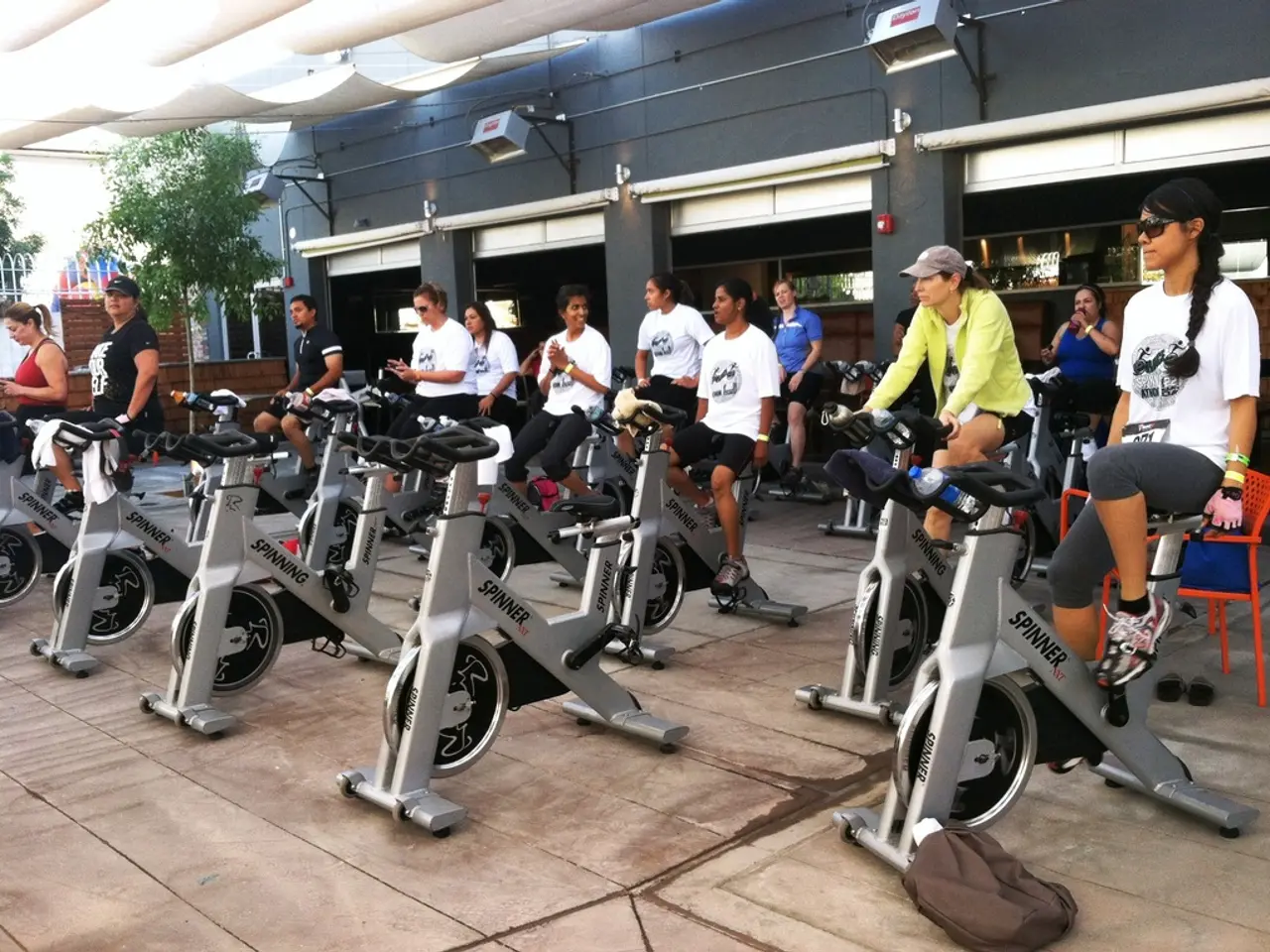Spot Reduction in Question: Is It Possible to Target Specific Areas for Fat Loss?
Achieving a slimmer, toned physique is a common goal for many, but misconceptions about spot reduction can hinder progress. Contrary to popular belief, fat loss doesn't happen only in the areas where you exercise, but rather across the entire body.
The Myth of Spot Reduction
Scientific research debunks the idea of spot reduction, demonstrating that fat loss is systemic rather than localized to exercised body parts. Studies consistently show that you cannot selectively lose fat from specific areas by targeting them with exercises such as crunches or leg lifts. Fat is metabolized from fat cells throughout the body according to overall energy balance, not just from muscles being worked.
The main reasons spot reduction is a myth include genetically and hormonally influenced fat storage patterns, the systemic fat mobilization via hormones and enzymes, and the fact that exercises targeting a muscle improve muscle strength and tone but do not affect the fat overlaying that muscle differently than fat elsewhere.
Effective Strategies for Long-term Body Composition Goals
Given this understanding, effective strategies for long-term body composition goals emphasize a holistic approach. Achieving a sustained calorie deficit through a balanced, calorie-controlled diet combined with regular physical activity is crucial for reducing overall body fat.
Incorporating both cardiovascular exercise and strength training is also essential. Cardio exercises like HIIT, running, cycling, and swimming are effective at increasing calorie expenditure for fat burning, while strength training is important for preserving lean muscle during fat loss and boosting metabolism.
Focusing on consistency and gradual progress, rather than quick fixes or extreme diets, is important. Slow, steady fat loss tends to preserve muscle and improve body composition better than rapid weight loss. Managing lifestyle factors such as stress, sleep, and hydration, which affect metabolism and fat storage, is also crucial.
The Importance of Nutrition
Nutrition plays a crucial role in maintaining a calorie deficit and supporting overall body function during workouts and recovery. Reducing processed foods and sugary snacks can help decrease overall body fat and support fat loss goals.
Celebrating Small Wins
Fat loss takes time, patience, and consistency. It's important to celebrate small wins along the way, as these can provide motivation and reinforce positive habits. Remember, genetics play a significant role in where the body stores and burns fat, so it's more beneficial to set realistic body composition goals, such as reducing overall body fat percentage, rather than focusing on specific areas.
The Psychology of Spot Reduction
The psychology of spot reduction persists due to the desire for quick fixes in today's world of instant gratification. However, understanding the science behind fat loss can help shift focus towards sustainable, long-term strategies for achieving a healthier, more toned physique.
In summary, fat loss occurs throughout the whole body rather than just where you exercise, and sustainable body composition improvements come from consistent calorie control, balanced nutrition, full-body exercise, and healthy lifestyle habits.
- Fat loss does not occur only in the areas where you exercise, but instead happens systemically across the entire body.
- Exercises such as crunches or leg lifts cannot selectively lose fat from specific areas.
- Fat is metabolized from fat cells throughout the body according to overall energy balance, not just from muscles being worked.
- Achieving long-term body composition goals requires a holistic approach, including a balanced, calorie-controlled diet and regular physical activity.
- Cardio exercises like HIIT, running, cycling, and swimming are effective for increasing calorie expenditure for fat burning.
- Strength training is important for preserving lean muscle during fat loss and boosting metabolism.
- Consistency and gradual progress is key, rather than quick fixes or extreme diets.
- Nutrition plays a crucial role in maintaining a calorie deficit and supporting overall body function during workouts and recovery.
- Fat loss takes time, patience, and consistency, so celebrating small wins along the way can provide motivation and reinforce positive habits.
- Understanding the science behind fat loss can help shift focus towards sustainable, long-term strategies for achieving a healthier, more toned physique.




